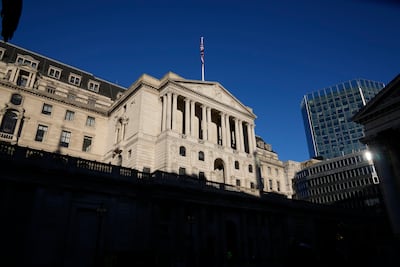UK inflation has hit the Bank of England's target of two per cent for the first time in nearly three years, according to the Office for National Statistics.
The ONS said the Consumer Prices Index (CPI) fell to two per cent in May, down from 2.3 per cent in the month before.
The figure was in line with economists' forecasts and continues a marked decline in the rate of inflation, after it hit a 41-year high of 11.1 per cent in October 2022.
The fall in the inflation rate will be welcome news for Prime Minister Rishi Sunak, who has made the battle against rising inflation a cornerstone of his economic recovery policies, but is unlikely to make a difference to his political fortunes in next month's general election at this late stage.
Indeed, consumer prices are about 20 per cent higher than they were three years ago, which has squeezed UK household budgets and led to a decline in living standards that has contributed to the growing unpopularity of Mr Sunak's Conservative Party, which is around 20 points behind the opposition Labour Party in opinion polls.
“Most people are feeling poorer than when they voted in the last general election nearly five years ago,” said Rebecca Florisson, principal analyst with the Work Foundation at Lancaster University.
“This is the first parliament since 1955 where living standards have declined – attributable to wage stagnation alongside wider impacts of the Covid-19 pandemic, war in Ukraine and political choices.”
No rate cut yet
The fall in the May inflation reading is also unlikely to spur the Bank of England to cut interest rates when it meets on Thursday, despite the fact that the decline in the rate of inflation has been more pronounced in the UK than in either the eurozone or the US, where inflation in May was 2.6 per cent and 3.3 per cent respectively.
The European Central Bank (ECB) lowered interest rates earlier this month, for the first time since 2019. The US Federal Reserve now expects to reduce interest rates just once this year, having predicted three cuts in 2024 as recently as March.

UK core CPI, which strips out the prices for energy, food, alcohol and tobacco fell to 3.5 per cent in May, down from 3.9 per cent in April, but is still persistently above 3 per cent, a level the Bank of England's rate-setting Monetary Policy Committee (MPC) would feel more comfortable with.
“The better headline news still looks unlikely to translate into an interest rate cut being delivered at tomorrow’s MPC meeting – if not for political reasons as much as economic ones,” said Stuart Cole, chief macro economist at Equiti Capital.
“An annual rate of core CPI of 3.5 per cent is still too high, as is the rate of services CPI which, despite falling from 5.9 per cent to 5.7 per cent, remains at a level that is troubling for the Monetary Policy Committee, and especially so given the dominance of this sector in the UK economy.”
The residual “stickiness” in core CPI and services inflation prompted Paula Bejarano Carbo, economist at the National Institute for Economic and Social Research (NIESR), to forecast that headline inflation could start to rise from the June reading due next month.
“Given that today’s data indicate that core inflation remains elevated, this rebound might be sharper than projected,” she said.
Ruth Gregory, deputy chief UK economist at Capital Economics, said while the inflation figures, particularly the core inflation and the CPI services numbers, had made their prediction of a rate cut in August “a little shakier”, the Bank of England certainly was not about to follow the ECB's move earlier this month and cut interest rates on Thursday.
“For now, we are sticking with our forecast that the bank will first cut interest rates from 5.25 per cent in August, although that relies on better news on services CPI inflation and wage growth in the coming months,” Ms Gregory said.
George Sweeney, from the personal finance comparison site Finder.com, said that if the Bank of England does lower rates in August it will not be by much, “particularly because the Bank of England has predicted a possible inflation spike up to 2.5 per cent later this year”.
“And, with all the hard work getting to this point, the Bank of England will be cautious about triggering further inflationary spikes if they appear to be overzealous,” he said.


